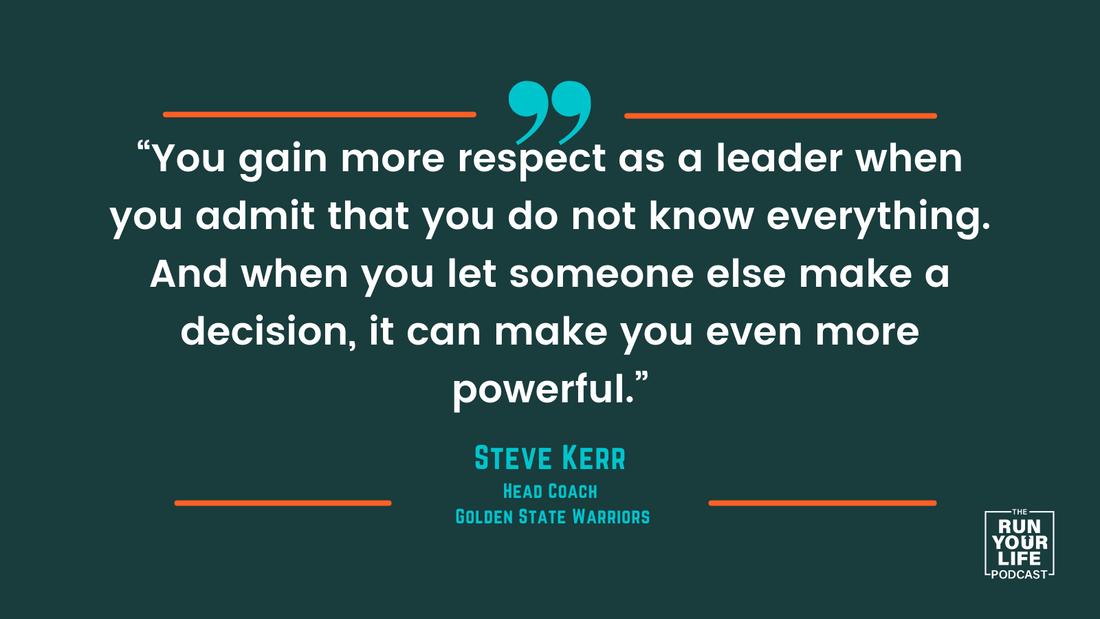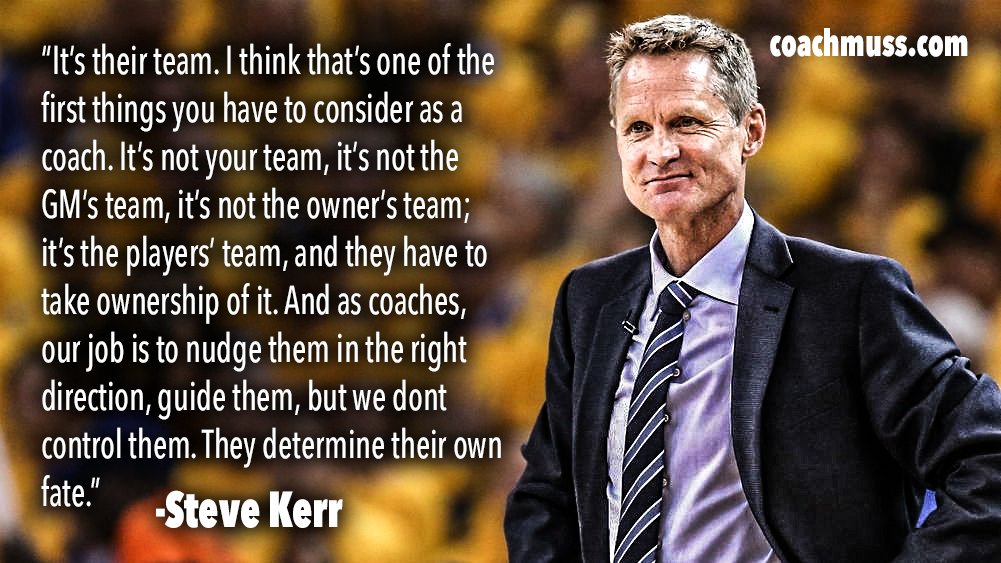|
Steve Kerr is the the head coach of the Golden State Warriors professional basketball team. In just his eighth season as an NBA head coach, he is already considered to be among the top basketball coaches in the history of the league. Steve already has three championship titles as head coach. In addition to these three championships, he also won five championships as a player for the Chicago Bulls. Steve leads with his heart and, although very clear and intentional about the vision he has for his club, he is also able to communicate that vision on a daily basis. Far from having a ‘his way or the highway’ type of attitude as many coaches demonstrate at times, Steve involves his players every step of the way when it comes to their style of play, strategy, and team planning. He is always willing to listen carefully to his players and allows them to make their own choices on the court when presenting them with options during games and practices. When they choose an option that is not his, he encourages them to run with it and doesn’t look at it as a threat to his character or bruise to his ego. He leads by example, honors player voice, but also guides his club with a sense of quiet confidence and firmness. What makes Steve a great coach is his willingness to let go and allow his players to own their decisions. However, to be clear, these decisions must align with the organization’s goals and vision. It's not a free for all or about letting the loudest players control the team. In providing his players with the autonomy needed to take ownership, he has creating an environment that allows his players the inner capacity to excel at their craft. How can this not be great for the team and organization? Great leaders must make firm decisions when needed in order to move the organization towards its mission and vision. The very best leaders know how to carefully navigate the fine balance needed between firmness and genuine autonomy in their organization.
The skills necessary to lead in this manner can be strengthened. Any leader can get better when they set their mind to it, but it takes deep reflection and a high degree of self-awareness to make the continual changes needed to grow and learn. As a leader, how do you hold yourself accountable for your own growth and learning? How do you communicate the ways you are hoping to get better with those who you serve? And lastly, how do you involve them in providing you with the feedback needed to continually develop your leadership practice? Thanks for reading.
0 Comments
Leave a Reply. |
AuthorKAUST Faculty, Pedagogical Coach. Presenter & Workshop Leader.IB Educator. #RunYourLife podcast host. Archives
September 2022
|
- Welcome
- All Things Teaching and Learning
- The Aligned Leader Blog
- Consulting and Coaching Opportunities
- My TED X Talk
- My Leadership Blog
- Run Your Life Podcast Series
- How PYP PE with Andy Has Helped Others
- Good Teaching is L.I.F.E
- The Sportfolio
- Example Assessment Tasks
- PYP Attitude Posters (printable)
- Publications


 RSS Feed
RSS Feed
